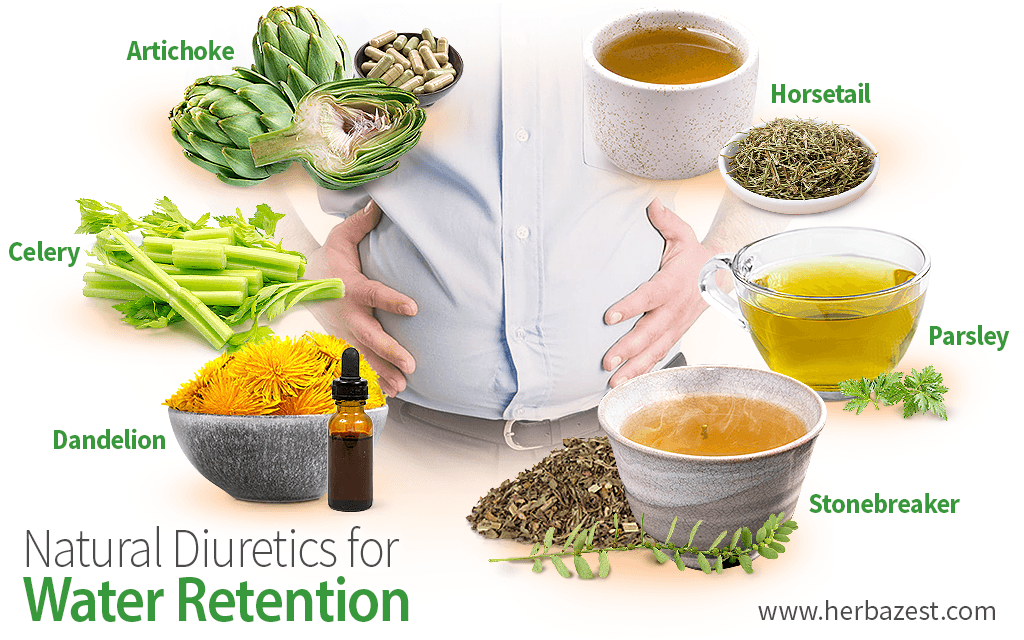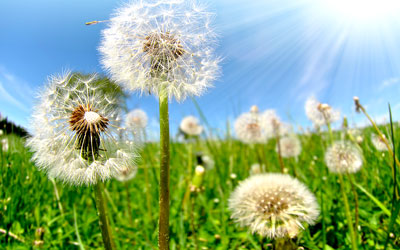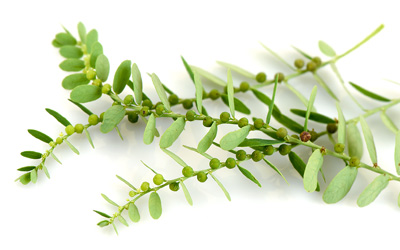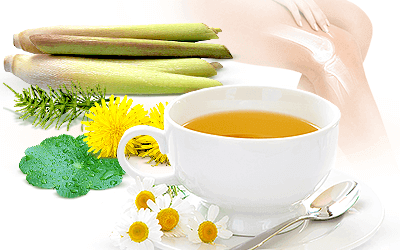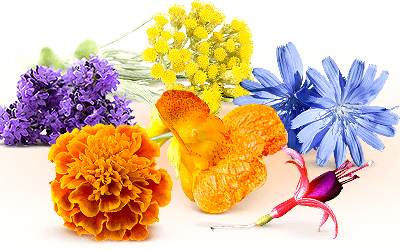Water retention, or edema, is caused by the build-up of fluids within the body. For most people, it just means an uncomfortable feeling of being "bloated" and overweight. For this reason, diuretic supplements are often used for weight loss purposes. However, the implications of storing an excess of water and sodium in body tissues and organs are far more serious. Edema, which can be localized or generalized, may also be a symptom of underlying conditions, such as heart, kidney, or liver disease.1,2
There may be many causes of water retention; however, the most common ones include:
- Hot weather and sunburn
- Standing up for long periods of time
- Excessive intake of salt
- Hormonal changes during the menstrual cycle and pregnancy
- Oral contraception
Water retention can be a difficult problem to deal with, but, fortunately, there are natural diuretics for edema. Take a look at these herbs that stimulate urination and help restore the balance of fluids within the body.
1. Artichoke (Cynara cardunculus)
This is a popular herb that, along with asparagus, has been traditionally used as a natural diuretic for relieving water retention, which, in turn, reduces high blood pressure as well as the risk of liver disease. Artichoke leaves are rich in caffeoylquinic acids and other bioactive polyphenols, which have been shown to exert anti-inflammatory and diuretic effects.3 The benefits of artichokes can be obtained through culinary uses, like adding it to salads and stews, and medicinal forms, such as infusions, tinctures, and capsules.
2. Celery (Apium graveolens)
Famously known as a diuretic herb, celery has also been shown to have anti-inflammatory properties, mainly due to the phthalides present in its stalks. This herb also contains potassium, which helps reduce sodium levels, thus alleviating bloating and water retention. The easiest way to consume celery is in culinary forms, particularly in healthy salads. Many herbal remedies for bladder health and the rest of the urinary tract also feature it as an ingredient, such as this diuretic celery infusion or this celery and cinnamon anti-bloating syrup.
3. Dandelion (Taraxacum officinale)
Popularly considered a garden weed, dandelion is one of the best herbs for water retention. It works by helping the liver remove toxins from the body and promoting the excretion of fluids. Dandelion is best enjoyed in beverages, like juices, infusions, or teas, brewed with the addition of burdock, another diuretic herb. Alternatively, the leaves can be used to make a dandelion salad or a dandelion pumpkin seed pesto. Additionally, this dandelion tincture for liver health can be a great remedy for detoxing the body.
4. Horsetail (Equisetum arvense)
Not as popular as other natural diuretics, horsetail is rich in silicic acid and luteolin, both of which are thought to be diuretic substances that contribute to horsetail's ability to rid the body of unnecessary fluids.4 Silicic acid can also help the kidneys to rid themselves of other harmful substances, particularly aluminum. Horsetail is fairly easy to grow in a backyard, and it can also be found online in medicinal forms and consumed as an infusion and decoction as well as essential oil, tincture, and capsules.
5. Parsley (Petroselinum crispum)
With its high chlorophyll content, parsley has an incredible diuretic power, which can be extremely helpful for getting rid of fluid retention. It is also packed with antioxidants, so it has a variety of other health benefits as well. Given the versatility of parsley, it is easy to incorporate it in culinary creations, like a Middle Eastern shakshuka, an aromatic chimichurri sauce, or a delicious almond and chicory risotto. The leaves of this incredible herb can also be brewed into a tisane for a comforting hot drink, or combined with other medicinal herbs to potentiate its effects, like in these uva ursi parsley capsules for urinary health.
6. Stonebreaker (Phyllanthus amarus)
Stonebreaker is becoming increasingly popular for its ability to prevent and dissolve kidney stones. It has powerful diuretic effects that not only help eliminate uric acid and body toxins, but also contribute to restoring water balance and reducing edema by increasing urination.5 A stonebreaker infusion or a stonebreaker and celery seed anti-gout decoction are easy to prepare at home and can be safely taken every day for getting rid of fluid excess and promoting kidney health.
Most of these diuretic herbs are readily available at supermarkets and online in supplemental forms, such as dried leaves, teabags, and capsules. While none of them have been linked to serious adverse reactions, it is always best to consult a medical practitioner before taking any herbal supplements.
Sources
- Better Health Channel, Fluid retention (oedema)
- Encyclopedia of Herbal Medicine
- Medicinal Plants of the World
- The Herb Book
Footnotes
- European Heart Journal Supplements: Journal of the European Society of Cardiology. (2019). The practical management of fluid retention in adults with right heart failure due to pulmonary arterial hypertension. Retrieved June 26, 2023, from: https://www.ncbi.nlm.nih.gov/pmc/articles/PMC6915055/
- Nephron. (2019). Salt and Water Retention Is Associated with Microinflammation and Endothelial Injury in Chronic Kidney Disease. Retrieved June 26, 2023, from:https://pubmed.ncbi.nlm.nih.gov/31514183/
- Evidence-Based Complementary and Alternative Medicine. (2017). Chemicals Compositions, Antioxidant and Anti-Inflammatory Activity of Cynara scolymus Leaves Extracts, and Analysis of Major Bioactive Polyphenols by HPLC. Retrieved June 26, 2023, from: https://www.ncbi.nlm.nih.gov/pmc/articles/PMC5429947/
- Evidence-Based Complementary and Alternative Medicine. (2014). Randomized, Double-Blind Clinical Trial to Assess the Acute Diuretic Effect of Equisetum arvense (Field Horsetail) in Healthy Volunteers. Retrieved June 26, 2023, from: https://www.ncbi.nlm.nih.gov/pmc/articles/PMC3960516/
- Indian Journal of Experimental Biology. (1995). Diuretic, hypotensive and hypoglycaemic effect of Phyllanthus amarus. Retrieved June 26, 2023, from: https://pubmed.ncbi.nlm.nih.gov/8786163/


